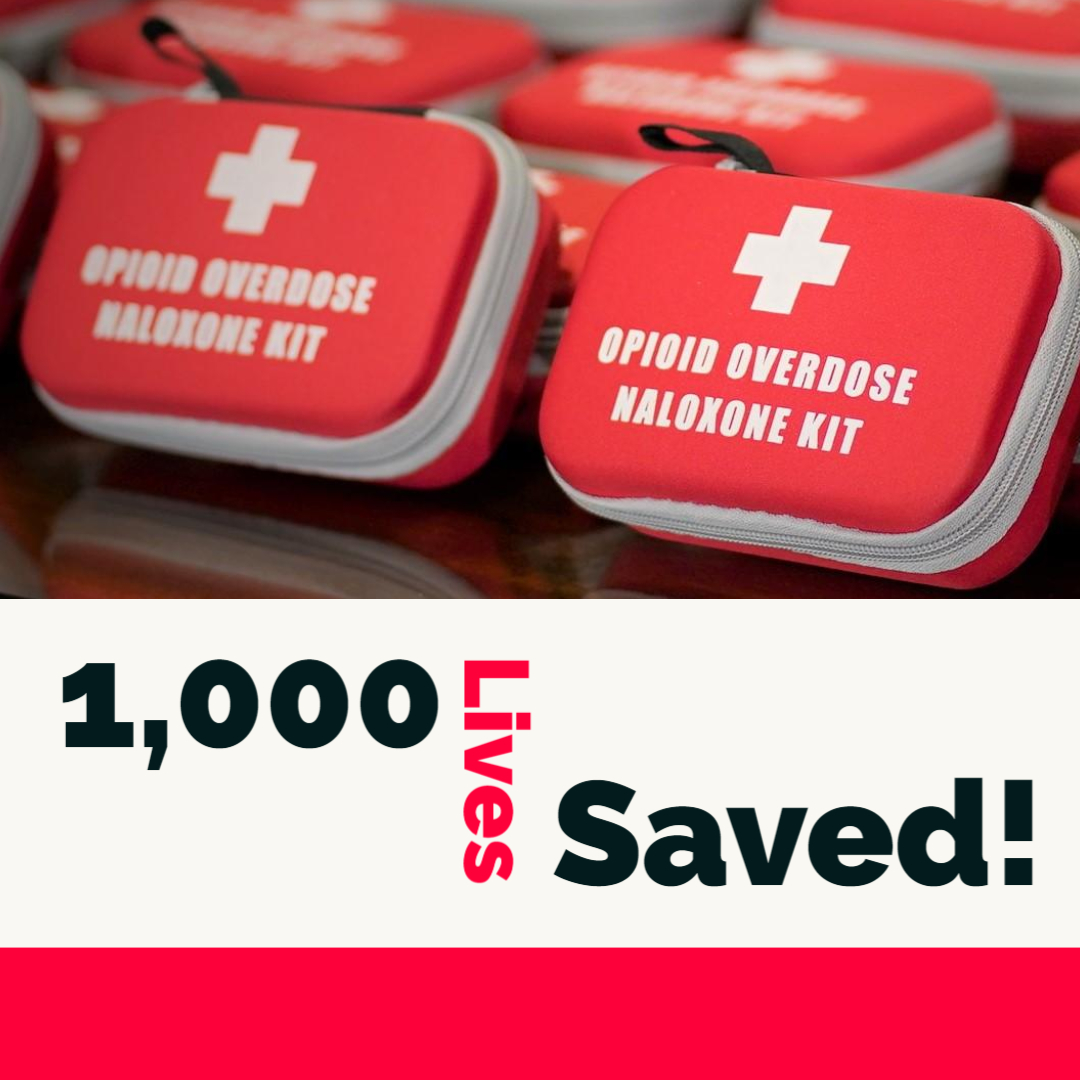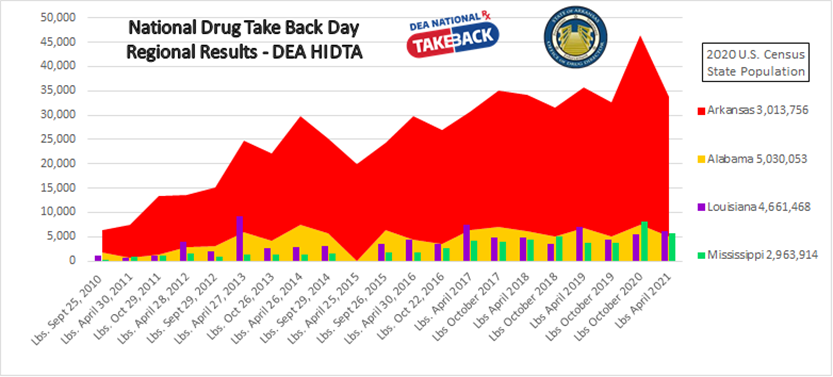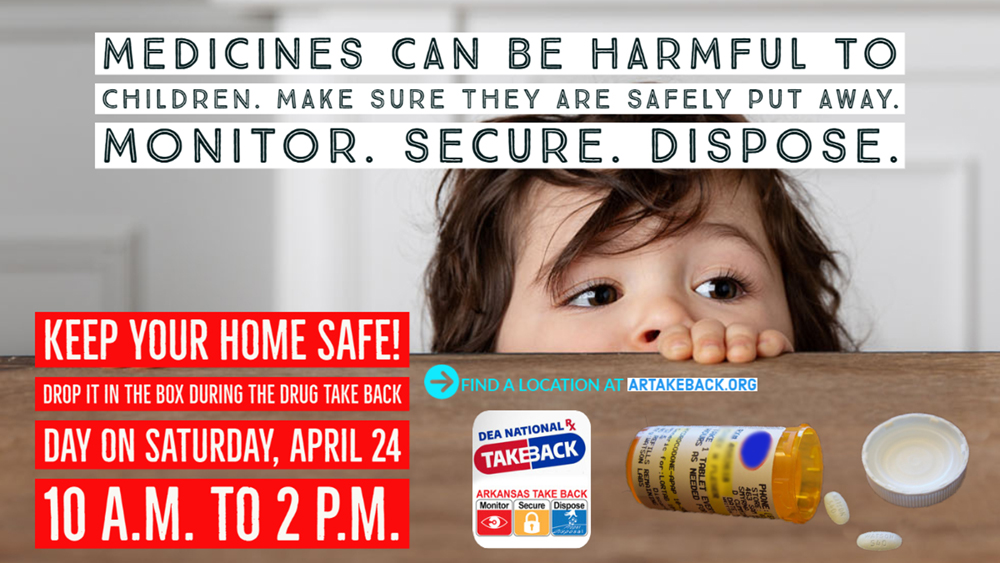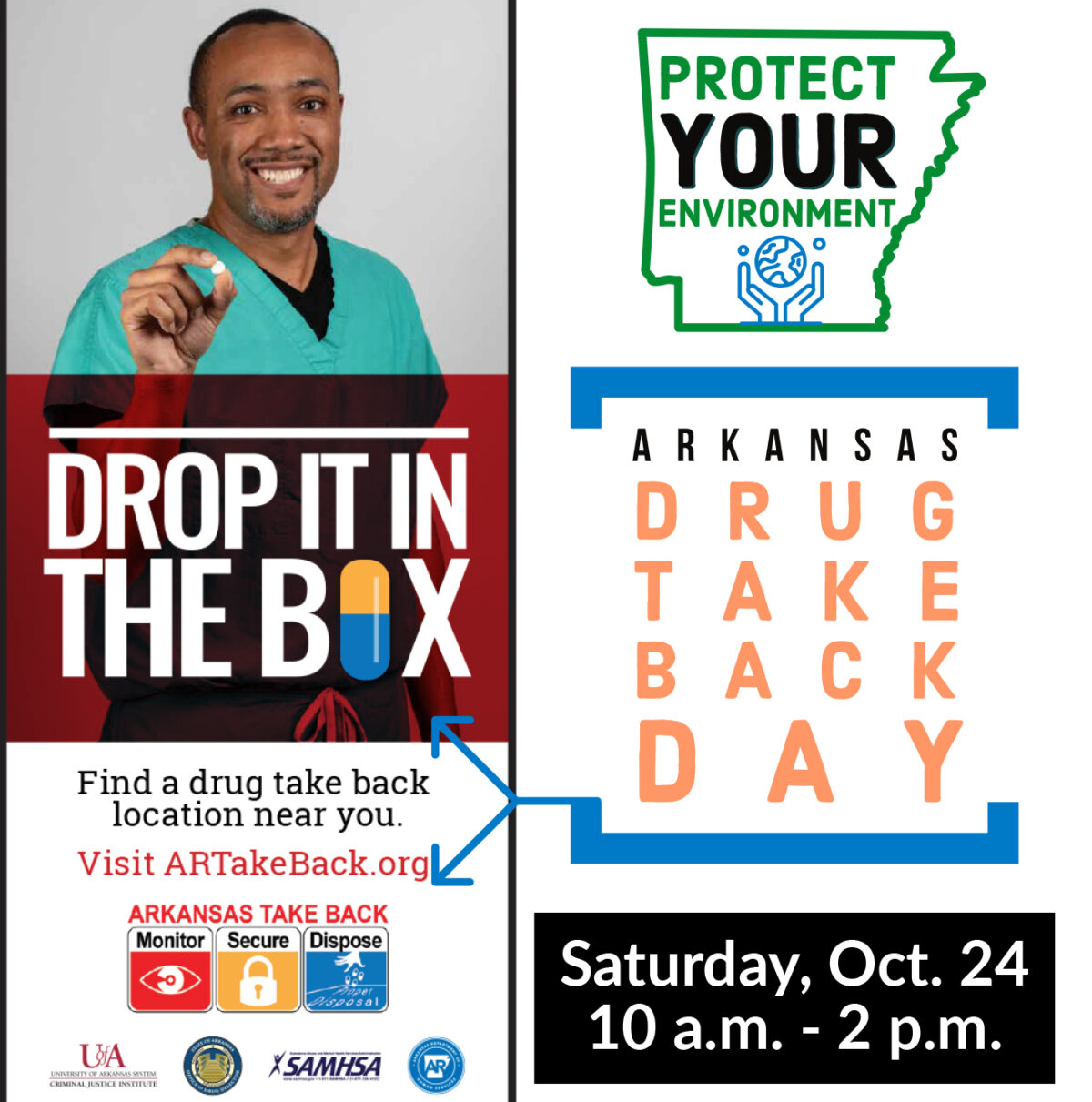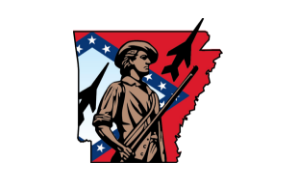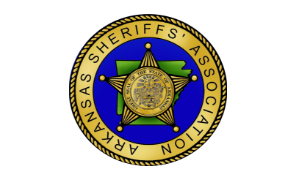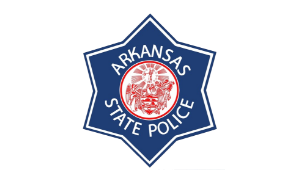Arkansans continue to entrust in the DEA Drug Take Back Day program leading the state to another top 10 completion in multiple categories nationally, including ranking third in grand total pounds per person. The state ranks fifth nationally in pounds per person for the Drug Take Back Day on April 24, 2021, but in the total of all 21 Drug Take Back Day events, the state ranks third in pounds per person, behind first-place Maine and second-place Wisconsin.
Arkansas ranks fifth in the amount of law enforcement agencies (207) who participated in the April 24, 2021, Drug Take Back Day, an increase from 197 and sixth rank during the October 24, 2020, Drug Take Back Day event. The state ranks 15th in the number of collection sites (131) for the April 24, 2021, Drug Take Back Day, an increase of five spots from the 20th rank during the October 2020 Drug Take Back Day, which the DEA totaled 91 sites (the DEA statistic doesn’t include the 270 permanent drop box locations where many Drug Take Back Day events were held.)
Arkansas totaled 28,705 pounds (14.35 tons) of mediations collected from the April 24, 2021, Drug Take Back Day, which is 9th nationally. In all 21 Drug Take Back events dating back to September 25, 2010, Arkansas has collected 442,162 pounds (221 tons) and consecutively ranks in the top 15 in numerous Drug Take Back Day event categories, despite ranking 34th in U.S. population (based on the 2020 U.S. Census).
Nationally, the U.S. collected 839,543 pounds (420 tons) of medications on April 24, 2021. Since 2010, the DEA Drug Take Back Day program has collected 14,524,391 pounds (7,262 tons) of medications. A total of 4,425 law enforcement agencies participated nationally in the April 24, 2021, Drug Take Back Day and there were 5,060 collection sites nationwide, according to the DEA.
Arkansas continues to lead the four-state DEA region (Alabama, Arkansas, Louisiana, and Mississippi) accounting for 63% of medications collected during the April 24, 2021, Drug Take Back Day and 65% total of all 21 Drug Take Back Day events. Arkansas also averages more participating law enforcement agencies than the other three states combined.
All medications collected are destroyed at environmentally safe facilities across the United States. Prescription medicines are toxic waste and pose a danger to people, pets, and the environment if they are not disposed of properly. Medicines flushed or poured down the drain ends up in the waterways, affecting our drinking water. More than half of the 444 reported drug overdose deaths in Arkansas in 2018 involved opioid medications and more than 70,000 Americans died from drug overdoses in 2019. Always monitor and secure all medications, and when they are ready to be disposed of, do so in an environmentally safe method by taking them to any of the 270 permanent drop box locations in Arkansas. To find a location, visit ardrugtakeback.org, click on the Collection Sites tab and enter a zip code.
Arkansas Drug Take Back Day History
The Office of National Drug Control Policy (ONDCP), as part of its National Drug Control Strategy, called for an increase of prescription drug return and disposal programs to curb prescription drug abuse. In early 2010, a coalition led by the State Drug Director, the Attorney General, both Arkansas Districts of the U.S. Attorney’s Office, and numerous federal, local, and state agencies, prevention professionals, and private organizations, launched an ongoing education program to encourage everyone to “Monitor, Secure, and Dispose” their prescription medications.
As part of the “Monitor, Secure, and Dispose” effort, the coalition organized Arkansas’s participation in the U.S. Drug Enforcement Administration’s National Prescription Take-Back Initiative, and take back events took place on September 25, 2010; April 30, 2011; October 29, 2011; April 28, 2012; September 29, 2012; April 27, 2013; October 26, 2013; April 26, 2014; and September 27, 2014. DEA announced the discontinuation of the national initiative in September 2014, but an Arkansas Drug Take Back Day event under the leadership of partners within the state was held on April 25, 2015. The DEA then reinstated the program nationally on September 26, 2015, and participates semi-annually since 2016 with Drug Take Back Day events held in April and October.
Due to the commitment, dedication, and effort of the Arkansas Law Enforcement Community, its partners, and the multi-agency coalition, and due to excellent participation by Arkansans in all areas of the state, the take back events have been successful above and beyond all expectations.
National Comparison (all Drug Take Back Day events):
- Arkansas ranks #3 nationally in pounds collected per capita with 0.147 pounds per person. Maine ranks #1 with 0.352 pounds per person and Wisconsin ranks #2 at 0.149 pounds per person.1
- Arkansas is 34th in population and ranks #12 in total weight collected with 442,162 pounds (221 tons).1
- The four-state DEA region consisting of Alabama, Arkansas, Louisiana, and Mississippi has a total weight of 675,451 pounds for all Drug Take Back Day events. Arkansas, despite being the least populated of the four, accounted for 65% of the total weight and averages more participating law enforcement agencies than the other three states combined.
Drug Take Back Day event #21 only:
- Arkansas ranks #9 nationally in weight collected (Top 10: Texas, Wisconsin, California, Ohio, Pennsylvania, New York, Massachusetts, Florida, Arkansas, and Missouri, respectively)
- Arkansas ranks #5 per capita (Top 10: Maine, Vermont, Wisconsin, New Hampshire, Arkansas, Kansas, Iowa, Delaware, Alaska, and Missouri, respectively)
- Arkansas ranks #6 in the number of law enforcement agencies participation.
- Arkansas ranks #16 in the number of collection sites (the DEA statistic doesn’t include the 270 permanent drop box locations where many Drug Take Back Day events were held.)
1 Determined using 2020 census estimates. 2 Determined using data supplied by the National DEA.
Local Comparison
Weight Collected Per Law Enforcement Agency (Take Back 21 only):
- Pulaski County Sheriff’s Office ranks #1 with 3,510 pounds collected.
- Garland County Sheriff’s Office ranks #2 with 2,000 pounds collected.
- Washington County Sheriff’s Office ranks #3 with 1,436 pounds collected.
- Benton Police Department ranks #4 with 1,112 pounds collected.
- North Little Rock Police Department ranks #5 with 892 pounds collected.
Honorable mention: Gentry Police Department ranks #6 with 831 pounds collected.
